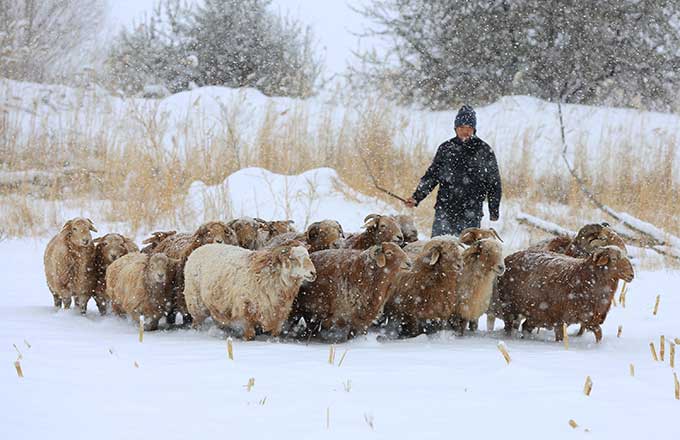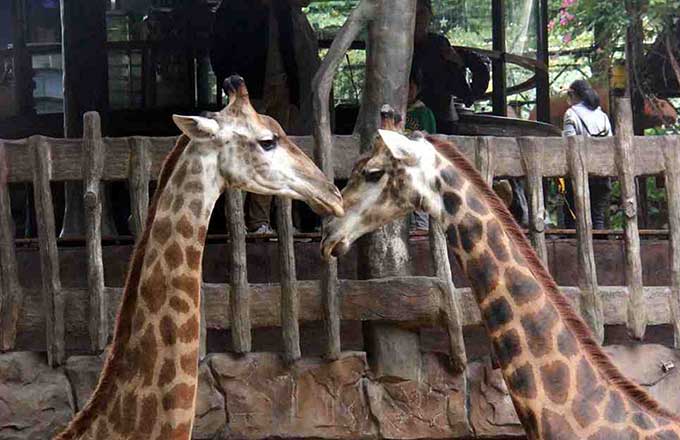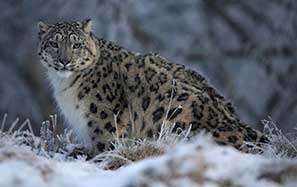Animals live longer in oxygen deficit environment, scientists say
Hypoxia, or a deficiency of oxygen reaching the tissues of the body, will cause animals in both laboratory and nature to have longer life spans than their peers in normal conditions, scientists from the Kunming Institute of Zoology under Chinese Academy of Sciences found.
Observations showed that the life spans of animals, such as caenorhabditis elegans, have extended when they are subjected to hypoxic conditions in the laboratory.
In addition, wild mammals with hypoxic habitats, such as the naked mole rat that lives in burrow, and whales that must hold their breath as they dive, seem to live longer.
Scientists tried to figure out the relationship between the genetic difference and the longevity by researching on the domestic animals living on the Qinghai-Tibet Plateau with adaptive characteristics.
The Qinghai-Tibet Plateau, known as the "third pole of the earth," has low oxygen, strong radiation and low temperature, a typical place with the natural hypoxic environment.
They found that the Tibetan mastiff has genes of hypoxia inducible pathway and chicken there have evolved to a potential genetic mechanism with calcium signal pathway to adapt to the plateau's conditions.
Scientists also discovered that the aging genes in Tibetans and plateau animals have fast evolution and different expressions comparing with those at lower altitude areas.
However, the rate of Tibetans aged above 60 was lower than that of people living at lower altitudes according to the national population census in 2010.
Zhang Yaping, a scientist who took part in the research, said that it might be caused by poor living and medical conditions.
Zhang pointed out that the census did show that the rate of Tibetans aged above 100 is higher than that of people at lower altitudes, which is echoed with "long life villages" found in the Andres area.
- Company rejects the 'longevity risk'
- Company rejects the 'longevity risk'
- Greenland shark sets longevity record
- Simple life 'secret' of longevity for Sichuan centenarians
- One thousand ways to write longevity
- Uncovering secrets of longevity
- Hezhou in Guangxi, the 1st longevity city in China
- Tian'e nominated for 'Chinese Longevity Village' title
- Is it a thing? 10 odd jobs where you can make good money
- Message on a bottle: Mineral water company launches drive to find missing children
- Sun Yat-sen champion of national integrity, unity: Xi
- Four killed, two injured after house collapses in C China
- Cross-Straits forum held to commemorate Sun Yat-sen















